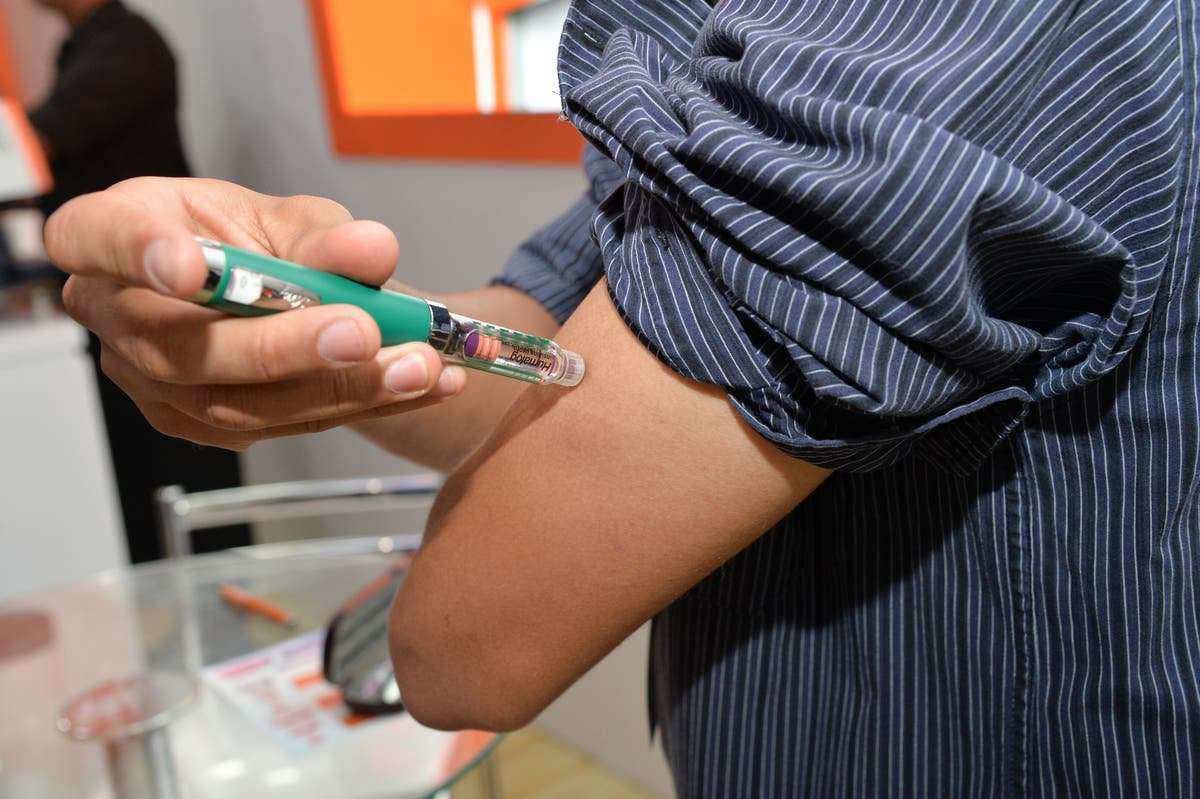The House voted to pass a bill Thursday that would cap the cost of life-saving insulin at $35 per month, a piece of legislation that would ease the burden on the millions of Americans living with the disease who pay out thousands of dollars each year on the drug.
The bill, which was originally wrapped into US President Joe Biden’s “Build Back Better” agenda, was sliced from the massive piece of legislation after it got stalled in the Senate.
Lawmakers, such as Democratic Rep Dan Kildee of Michigan, one of the authors of the bill, decided to chair an initiative to get this section of Joe Biden’s overarching plan passed, telling reporters on Wednesday that it’s “outrageous that a single vial of insulin costs up to $1,000, when the medication costs just a few dollars to make”.
When it went before the House Thursday, the vote largely fell along party lines with a 232-193 majority and only a dozen Republicans joining Democrats in support.
Rep. Daniel Meuser of Pennsylvania, Rep. Mariannette Miller-Meeks of Iowa, Rep. Bill Posey of Florida, Rep. Christopher Smith of New Jersey, Rep. Fred Upton of Michigan, Rep. Andy Harris of Maryland, Rep. Jaime Herrera Beutler of Washington, Rep. Richard Hudson of North Carolina, Rep. John Katko of New York, Rep. Nicole Malliotakis of New York, Rep. Don Bacon of Nebraska, and Rep. Brian Fitzpatrick of Pennsylvania were the only Republicans to join the vote in favour.
More than 37 million Americans live with either type one (produce no insulin at all) or type two (do not use insulin properly) diabetes and a quarter of them rely on insulin to stay alive.
But with the price of insulin skyrocketing in recent years (for instance, a vial of insulin made by Eli Lilly cost just $21 in 1999, but by 2019 prices had shot up by 1,000 per cent to $332 a vial), it’s now become the most expensive chronic disease to treat in the country.
Speaking ahead of the bill’s vote, Democratic Rep Hakeem Jeffries emphasised how important this bill’s passing would be to the millions of Americans who have found themselves forced to ration the lifesaving product.
“It’s off patent there are no research and development costs associated with [insulin] yet so many Americans pay approximately $4,000 a year ... That’s unacceptable, un-American, and unconscionable,” he said.
In a survey conducted by the American Diabetes Association, they found that one in four people living with the disease admitted to having rationed their insulin because of its high price, with some reporting that they’d even skipped out on doctor’s appointments.
Congressman Jeffries says the bill, which wouldn’t come into effect until 2023, caps the cost-sharing for a monthly insulin supply at $35 or 25 percent of a plan’s negotiated price, whichever is lower.
“That’s not fiction, that’s fact. That’s not hyperbole, that is game changing for everyday Americans once again democrats deliver for the people,” Mr Jeffries said.
The bill now faces an uphill battle as it heads to the Senate, where Senate Republicans, much like their House counterparts, compare the measure to “government price fixing”.
“Today, it’s the government fixing the price on insulin,” said Rep Cathy McMorris Rodgers. “What’s next? Gas? Food? History tells us that price fixing doesn’t work.”
Other critics of the legislation point out that the Affordable Insulin Act has some loopholes, namely that it wouldn’t include the coverage of the 28 million people in the US who don’t have health insurance.
It also doesn’t address the major issue of the US pharmaceutical companies price gouging the overall price of the lifesaving drug, and instead shifts that burden onto a person’s insurers and employers.
For comparison, a study conducted by the RAND Corporation, an American nonprofit global policy think tank, found that drug companies in the US charge more than in nearly three dozen other countries surveyed, while the same study found that the average price in the US was more than ten times higher than the average for all of the other countries combined.
The American average list price for a vial of insulin was $98.70. The closest any other country came to that was Chile where the same amount of the lifesaving drug, on average, costs $21.48.
Though the US accounts for just shy of 15 percent of the global insulation market, their populace pays for nearly half of the pharmaceutical industry’s annual insulin revenue.
While it required minimal support from across the aisle to get passed in the House, when it’s sent to the Senate, all 50 Democrats will need at least 10 Republicans to sign-on to get the bill to the president’s desk.

-CJF- on April 2nd, 2022 at 11:40 UTC »
How these people stay in office is beyond me. Who the fuck is against lowering prices of life-saving drugs? How does one even begin to justify that?
LuvKrahft on April 2nd, 2022 at 10:59 UTC »
Does the gop support anything other than tax cuts for rich people and silly made up culture war malarkey?
PREClOUS_R0Y on April 2nd, 2022 at 10:54 UTC »
193 people voted against lowering the cost of a life-saving drug. It's almost comical at this point, rural poor people with diabetes that watch Newsmax every day will just keep re-electing these swine.